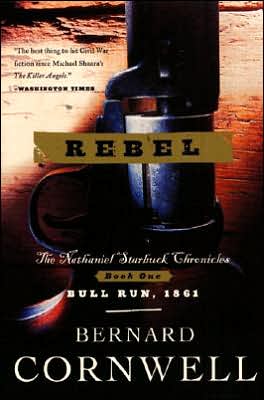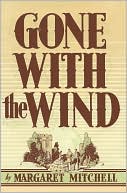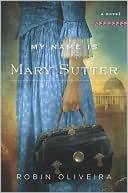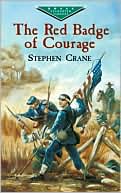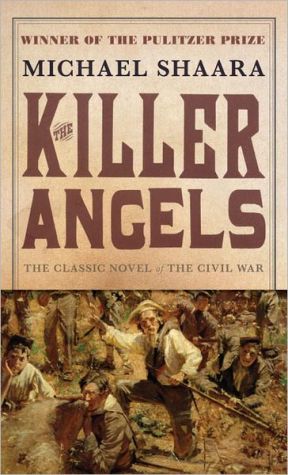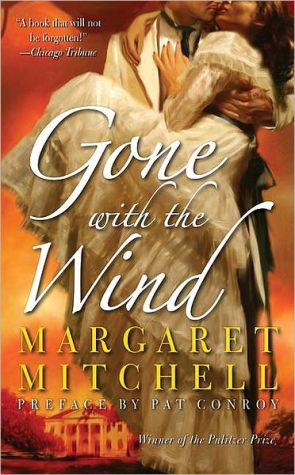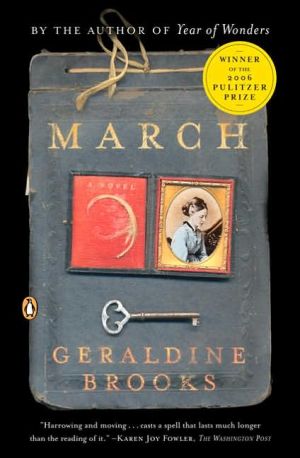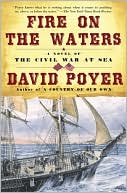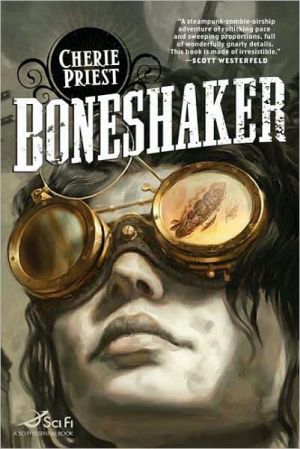Rebel (Nathaniel Starbuck Chronicles #1)
When Richmond landowner Washington Faulconer snatches young Nate Starbuck from the grip of a Yankee-hating mob, Nate is both grateful and awed by his idealistic rescuer. To repay his generosity, he enlists in the Faulconer legion to fight against his home, the North, and against his abolitionist father. When the regiment joins up, ready to march into the ferocious battle at Buff Run, the men are prepared to start a war . . . but they aren't ready for how they—and the nation—will be forever...
Search in google:
When Richmond landowner Washington Faulconer snatches young Nate Starbuck from the grip of a Yankee-hating mob, Nate is both grateful and awed by his idealistic rescuer. To repay his generosity, he enlists in the Faulconer legion to fight against his home, the North, and against his abolitionist father. When the regiment joins up, ready to march into the ferocious battle at Buff Run, the men are prepared to start a war . . . but they aren't ready for how they—and the nation—will be forever changed by the oaths they have sworn for their beloved South.Birmingham NewsFast paced and exciting... Cornwell — and Starbuck — don't disappoint.
Chapter OneThe invasion began at midnight.It was not truly an invasion, just a heavy raid on a rebel encampment that a patrol had spotted among the thick woods that crowned the high bluffs on the Virginia side of the river, but to the two thousand men who waited to cross the bleak slate-gray swirl of the Potomac River this night's exertions seemed more momentous than a mere raid. This fight across the river was their opportunity to prove their critics wrong. Nursery soldiers, one newspaper had called them; wonderfully trained and beautifully drilled, but much too precious to be dirtied in battle. Yet tonight the despised nursery soldiers would fight. Tonight the Army of the Potomac would carry fire and steel to a rebel encampment and if all went well they would march on to occupy the town of Leesburg, which lay two miles beyond the enemy camp. The expectant soldiers imagined the shamefaced citizens of the Virginia town waking to see the Stars and Stripes flying over their community again, and then they imagined themselves marching south, ever farther south, until the rebellion was crushed and America was reunited in peace and brotherhood."You bastard!" a voice shouted loudly from the river's edge where a work party had been launching a boat carried from the nearby Chesapeake and Ohio Canal. One of the work party had slipped in the clay, dropping the boat's stem onto a sergeant's foot. "You no-good son of a bitch goddamn bastard!" The Sergeant hopped away from the boat."Sorry," the man said nervously."I'll give you sorry, you bastard!""Silence! Keep it quiet now!" An officer, resplendent in a new gray overcoat that was handsomely lined in red, clambered down the steep bank and helped lift the skiff toward the river's gray water from which a small mist crept to hide the lower slopes of the far bank. They labored beneath a high moon, no clouds, and a spread of stars so bright and clean they seemed like an augury of success. It was October, the fragrant month when the air smelt of apples and woodsmoke, and when the sweltering dog days of summer gave way to clear sharp weather that held just enough promise of winter to persuade the troops to wear their fine new overcoats that were the same color as the river's drifting mist.The first boats pushed clumsily off the bank. The oars clattered in the oarlocks, then dipped and splashed as the boats receded into the mist. The men, who a moment before had been cursing and cumbersome creatures clambering down the clay bank into the clumsy boats, were mysteriously transformed into warrior silhouettes, spiky with weapons, who glided silent and noble through the vaporous night toward the misted shadows of the enemy shore. The officer who had remonstrated with the Sergeant stared wistfully across the water. "I suppose," he said softly to the men around him, "that this was how Washington felt on the night he crossed the Delaware?""A much colder night, that one, I think," a second officer, a young student from Boston, replied."It'll be cold enough here soon," the first officer, a major, said. "There's only two months till Christmas." When the Major had marched to war, newspapers had promised that the rebellion would be over by fall, but now the Major was wondering whether he would be home with his wife and three children for the family rituals of Christmas. On Christmas Eve they sang carols on Boston Common, the children's faces lit by lanterns hung on poles, and afterward there were warm punch and slivers of cooked goose in the church vestry. Then on Christmas Day they went to his wife's parents' farm in Stoughton, where they harnessed the horses and the children laughed in delight as they trotted down country roads in a cloud of snow and a tinkling of sleigh bells."And I rather suspect General Washington's organization was superior to ours," the student-turned-lieutenant said in an amused voice. His name was Holmes and he was clever enough to awe his superiors, but usually intelligent enough not to let that cleverness alienate their affections."I am sure our organization will suffice," the Major said just a little too defensively."I am sure you're right," Lieutenant Holmes said, though he was not sure of that fact at all. Three regiments of northern troops waited to cross, and there were just three small boats to carry them from the Maryland shore to the island that lay close to the river's far bank, upon which island the troops must land before reembarking on two more boats for the final short crossing to the Virginia mainland. Doubtless they were crossing the river at the spot closest to the enemy encampment, but Lieutenant Holmes could not really understand why they did not cross a mile upstream where no island obstructed the river. Maybe, Holmes surmised, this was such an unlikely crossing place that the rebels would never think to guard it, and that seemed the best explanation he could find.But if the choice of crossing place was obscure, at least the night's purpose was clear. The expedition would climb the Virginia bluffs to attack the rebel camp and capture as many Confederates as possible. Some rebels would get away, but those fugitives would find their flight blocked by a second Yankee force that was crossing the river five miles downstream. That force would cut the turnpike that led from Leesburg to the rebel headquarters at Centreville, and by trapping the defeated rebel forces it would provide the North with a small but significant victory to prove that the Army of the Potomac could do more than just drill and train and mount impressive parades. The capture of Leesburg would be a welcome bonus, but the night's real purpose was to prove that the... Copperhead. Copyright © by Bernard Cornwell. Reprinted by permission of HarperCollins Publishers, Inc. All rights reserved. Available now wherever books are sold.
\ Birmingham NewsFast paced and exciting... Cornwell — and Starbuck — don't disappoint.\ \ \ \ \ Birmingham NewsFast paced and exciting... Cornwell — and Starbuck — don't disappoint.\ \ \ Kirkus ReviewsCornwell, whose wonderfully entertaining Sharpe series of 18th-century military-sea adventures has entranced readers for years, starts a Civil War series with a great bang. Nate Starbuck is a Yankee, the son of a loathsome but quite famous abolitionist minister, and lately a Yale divinity student. Nate's path to the pulpit was interrupted by an infatuation with an actress. But abandoned by the actress in Richmond in the opening days of the war, Nate falls victim to an anti-Northern mob and is about to be tarred and feathered when he's rescued by Washington Faulconer. Faulconer, one of the richest men in the South, has been putting together his own legion to take to battle against the Yankees. Without a cent of his own, embarrassed by his foolish fling, and much taken with the dashing Colonel Faulconer, Starbuck throws his lot in with the South and signs on with the legion—then rides west to his first tricky assignment: to sign up Thomas Truslow, a charismatic but excessively independent and possibly murderous farmer, to be one of Faulconer's sergeants. He finds Truslow, all right, but he also finds Truslow's fatally alluring, 15-year-old daughter Sally, an expectant mum. Truslow, who quickly discovers Nate's theological training, won't go anywhere until Nate first prays over the late Mrs. Truslow and then weds Sally to a young neighbor boy. Expecting to be struck by lightning for posing as a preacher, Nate does as he's told and then takes Truslow back to Faulconer Courthouse, where everybody is training to ride off to what will be the first real battle of the war, the battle of First Manassas—where Starbuck learns, to his surprise, that he's a born soldier. Wonderfulstuff. Starbuck is a worthy hero, smart enough to be interesting, callow enough to be real. Virginia is a great stage, teeming with Confederate and military politics, and the battle scenes, when they come, are presented with real mastery. They hurt. (First printing of 50,000)\ \ \ \ \ From Barnes & NobleFrom the author of the best-selling Sharpe series comes this first volume of The Starbuck Chronicles. Meet Yankee rebel Nate Starbuck, a renegade from Boston, who finds himself fighting for the Confederates at First Bull Run/Manassas.\ \
